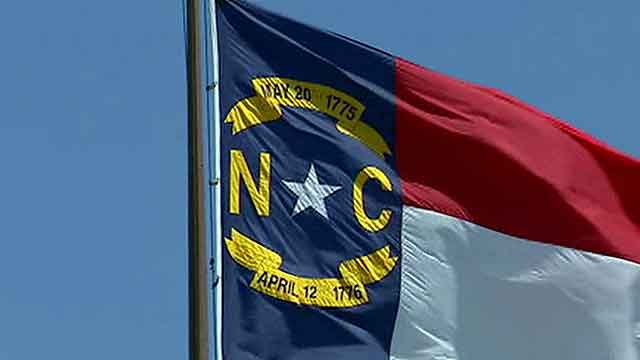RALEIGH, N.C. – As Washington bickers over raising taxes, North Carolina has joined a growing list of states that are moving in the opposite direction by looking to eliminate the income tax altogether.
Republican North Carolina state Sen. Bob Rucho is leading the charge to reform the state's tax system, which he calls outdated and blames for dragging the economy down. He believes scrapping the state's 7.75 percent personal income tax and the 6.9 percent corporate income tax would spur economic growth and create jobs.
"When this is fully implemented, the paychecks will be higher," Rucho said. "Every single person in North Carolina will have more money to spend, to use for what they believe they need or want."
At least three other Republican-controlled states are looking at proposals to completely eliminate state income taxes in 2013.
Kansas Gov. Sam Brownback hopes to end his state's income tax over the next few years and says his plan has already yielded results by attracting a record number of new businesses to his state in 2012.
Louisiana Gov. Bobby Jindal is also pushing a proposal to end income taxes in his state. Both governors are backed by Republican supermajorities in the state legislatures, as exists in North Carolina.
And Nebraska is currently studying the feasibility of a tax overhaul.
All the proposals and their supporters cite states that already operate largely without income tax revenue. Alaska, Texas, Florida, Tennessee, New Hampshire and Washington state have no personal income taxes -- while Nevada, South Dakota and Wyoming operate without personal or corporate income taxes.
"Well, we have studied this for the past six to eight months and we looked at Texas, Florida, Tennessee and Nevada and tried to pick the best aspects of their economy," Rucho said. "That gives them a more vibrant economy."
North Carolina Senate President Pro Tempore Phil Berger compares many of the "no-income tax" states, which enjoy lower unemployment and high job growth rates, to higher income tax states, such as New York and California -- which he sees as struggling financially.
"What we would do is move North Carolina more in the direction of Texas as a low tax state, a high job creation state and away from what we are now," Berger said. "Some folks refer to us as 'the California of the Southeast.'"
But what has become a popular trend in conservative circles is creating concern among some moderate Republicans and Democrats, who fear eliminating state income taxes would shift the burden to the poor.
State personal and corporate income taxes currently provide about 60 percent of North Carolina's operating revenue. If these taxes were eliminated, the lost revenue would be replaced by increasing and expanding the sales tax.
Taxes would potentially increase on home sales and be expanded to include such services as pet grooming, health club memberships, car washes, advertising and haircuts.
But what worries critics most are sales tax increases on basic necessities, such as food and health care. Consumers could see sales taxes on their grocery bills quadruple by next year. Sales taxes could also be expanded to include out-of-pocket medical expenses, such as insurance co-pays, deductibles and dental procedures.
"What you are really doing is impacting low and middle income families who spend more of their income day to day on basic necessities," said Alexandra Sirota, budget and tax director with the North Carolina Justice Center. "They will see their taxes go up and high income folks who tend to save more, tend to spend less on taxable items will see a huge tax cut."
The North Carolina Justice Center, which calls itself a "progressive advocacy and research organization," says the current proposal to eliminate income taxes and raise sales taxes would increase taxes on families living at or below the poverty line, while handing millionaires huge tax breaks.
Opponents of the plan say it would make life harder for residents on fixed incomes, such as cancer survivor Patricia Evans-Carpenter. She faces $29,000 in medical bills and says she already is making tough choices between daily necessities, such as utilities, groceries and gas for her car. Evans-Carpenter worries that added sales taxes on medical co-pays and groceries could push her to a financial breaking point.
"These are things that people need. We have to eat. We have to have toiletries. Prescriptions have to be filled and bills have to be paid," she said. "You just can't tax everything and expect people to be able to take care of those expenses."
Still, supporters of the North Carolina tax proposal maintain that lower and middle income residents will benefit from higher paychecks and more jobs. Despite the fact that Gov. Pat McCrory's budget director has publicly criticized the idea, lawmakers are confident they will get tax reform passed by the end of this year.
"The current system has led to where we are now, where we are unfortunately leading the Southeast in unemployment, as opposed to leading the Southeast in job creation," Berger said.












































